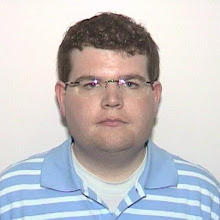As I read this article by Dr. Bauer, I had the opportunity to reflect upon my own life experiences, both with technology and with music. One of the most interesting things I considered was the privilege and opportunity I have to live in an era where technology is booming across the earth, and playing a major role in the lives of millions. It is strange to think that only a decade ago, the Internet was just starting to become a worldwide phenomenon. It seems so commonplace today, that sometimes I take it for granted. But at twenty-seven years of age, I can easily remember a time when "email" or "web browser" were foreign terms.
Dr. Bauer refers to the youth of today as "Digital Natives," meaning they were born into a world of rich technological advances. He then talks about adults who have more or less "adopted" a life of Blackberries, iPods, and Twitter. Reflecting upon this, I would consider myself somewhere in the middle. I was definitely not born into a world of technological breakthroughs like today, but I'm not so ancient as to never have known what a floppy disk was. I consider myself lucky to be born in the age of a great technological revolution. I was able to see in my life the progress of the first Macintosh to the latest in computer innovation. I therefore think I have a greater appreciation for this technology then someone born a decade later. On the other hand, by my high school days, the internet WAS available to me, and I experienced the privilege of "google," "yahoo," and "hotmail." It is my strong belief that being a young, firsthand witness to this progression will enable me to use technology in a fantastic way as a future educator.
Before I comment on "TPACK" itself, I want to mention a few things by way of my history with music notation technology. As a high school student, I loved to compose my own music and I was always aware of the latest and greatest music notation software. One of the earliest programs I ever purchased was notation software entiteld "Music Time." Although primitive in outlook, and lacking basic fundamental abilities to print a "professional" looking score, this software allowed me to compose music and hear playback. It introduced me to the world of MIDI, a world I have loved ever since. Being able to compose and orchestrate my own music, (as well as that of others) was a real treat and taught me valuable lessons that would prove vital in my college years of theory and ear-training. I was able to share my compositions with others via the internet, and download the files of other budding composers. This was a great supplement to my musical training on saxophone and piano, and I believe that many young people can benefit from the use of such technology. What would the young Beethoven have thought?
As a musician and future educator, I'm very excited about the possibilities of technology and the classroom. However, In this article I learned that a mere knowlege of the technological advances of today and tomorrow will not be enough for me to be a successful educator. Rather, it will have to do with how I integrate the technology into the content I wish to teach, and how I wish to teach it (pedagogy). I believe this is what is at the heart of TPACK: The ability to succesfully integrate technology in such a way as to be informational and beneficial for each individual student, while holding true to the integrity of the "content," or material I wish to teach. I think half of the battle will be deciding on how to use technology responsibly in a way that does not take away from a successful class ciriculum, while the other half will be deciding how to best use the technology in a way where the students learn, feel good about themselves, are motivated to improve, and are excited about the futre.
One thing that this article did not go into great depth on was the practicality and availability of such expensive technology in the secondary school. While TPACK is a great ideology, I'm not certain that future students will have the money and resources to benefit from such a highly saturated diet of "Technology Soup." This is in great part due to the difficult economic times, and of course will vary from district to district; state to state. But I think it is worth noting that new technologies are wonderful, in as much as they are regarded as a means to an end and not the end itself. New technologies are exciting tools to help students and teachers alike enhance their daily musical experienecs, and open their minds to new ideas and possibilites. But at the end of a day, technology is still a tool, an instrument used in place of another approach to educate our students: the future teachers of tomorrow.
Thursday, September 3, 2009
Subscribe to:
Post Comments (Atom)

The trick here is to learn about technological resources that not only fit into the TPACK model, but are also affordable (or free!) Hopefully by the end of the semester you will have a different outlook on what is possible with limited money and resources. The great thing about the connectivity that we experience through technology is the increased availability of programs written by music education experts who are familiar with public school budget woes.
ReplyDelete